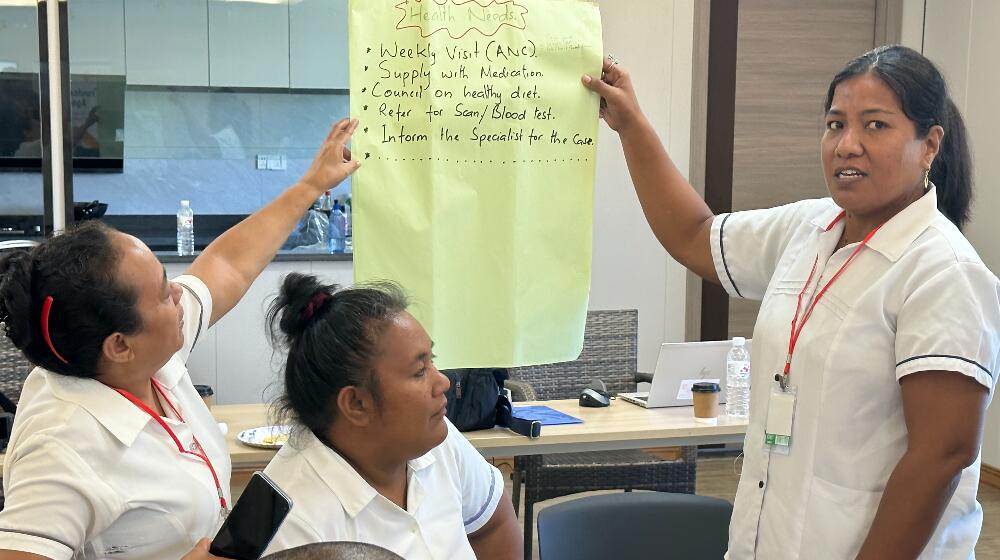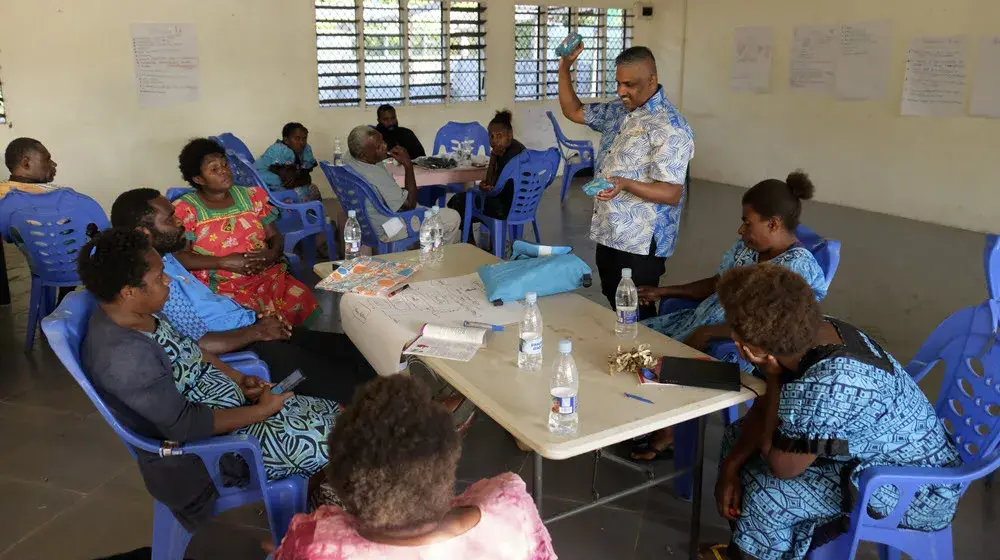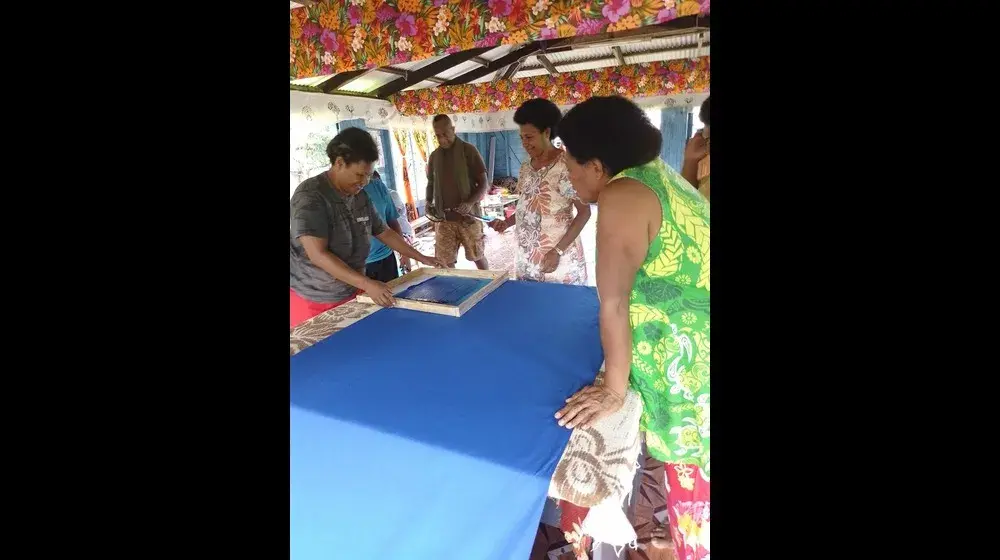SOUTH TARAWA, Kiribati – “I am very fortunate to have been part of this ‘MISP’ training. I have gained more knowledge and practical skills. I feel more confident that I now can provide even better healthcare services in my island’s health center,” said Ms. Kakiata Maritind, a midwife and Medical Assistant (MA) from Butaritari Island, Kiribati, who recently travelled some 190 kilometers to the country’s capital city in Tarawa Island to complete an intensive training that the United Nations Population Fund (UNFPA) Pacific undertook on the Minimum Initial Service Package for Sexual and Reproductive Health in Crisis Situations, or MISP.
When a community is hit by a crisis such as a conflict, earthquake, cyclone, health pandemic, etc. the resulting disruption in health and social services often increase deaths and morbidities among pregnant women, mothers and newborns, as well as sexually transmitted infections (STI) such as HIV, unintended pregnancies, in addition to gender-based violence (GBV). These sexual and reproductive health (SRH) and protection needs in emergencies, especially for women, adolescent girls and persons with disability, are all often overlooked in preparedness and responses. Therefore UNFPA is assisting Member States globally with rolling out MISP, so that national and local governments and NGO partners are able to provide essential life-saving services to meet these special SRH/GBV needs of affected populations, when responding to the onset of a humanitarian crisis, recovering from the emergency, and integrating these comprehensive services into primary health care to better prepare for a future disaster.
In Kiribati case, it is the confluence of exposure to climatic hazards - such as sea-level rise and soil erosion, heat waves, altered rainfall patterns and drought - that has put additional strains on the healthcare system which is already fragile with limited resources to cope with the logistical complexities in reaching out to dozens of far-flung atolls with inhabitants. In response, UNFPA Pacific led by its Humanitarian Team based in Fiji and Kiribati Country Office has been providing MISP capacity development support to the country since 2019.
This year’s training from 5-8 September 2023 targeted a wide range of government officials and service providers nationwide, including from Ministries of Health and Medical Services (MHMS), Women Youth Sport and Social Affairs (MWYSSA), National Disaster Management Office (NDMO), Mayors and Medical Assistants from four outer islands of Butaritari, Marakei, Tab North and Onotoa, as well as non-governmental organisations such as Kiribati Family Health Association (KFHA) and Kiribati Disability People’s Organization (DPO).
“MISP is not just a concept. It is indeed a life-saving tool,” said Iori Kato, UNFPA Pacific Director and Representative in Fiji, in opening this year’s MISP Training in Tarawa, addressing the participants totalling 30. “When your fellow citizens in your community suffer from a climate crisis or a health pandemic, you will be the first ones whom the community will come to seek assistance from. By employing MISP, you are going to save their lives, heal their wounds, protect them from harm’s way, and restore their dignity and hope, so that they can survive the crisis and build back better. You will be the source of their community resilience.”
Ms. Eretii Timeon, MHMS Director for Public Health Services underscored vis a vis the MISP training participants, “Sexual and reproductive health is an integral part of the Kiribati National Health Action Plan. We are all together, as one team. Let’s address reproductive, maternal, newborn, child, and adolescent health needs in Kiribati, at all times.”
UNFPA’s MISP training in Kiribati this year was assisted by the United States Agency for International Development (USAID) Bureau for Humanitarian Assistance (BHA), as well as by the Australian Government’s Department of Foreign Affairs and Trade (DFAT) through its financial support to UNFPA Pacific’s Transformative Agenda programme.





